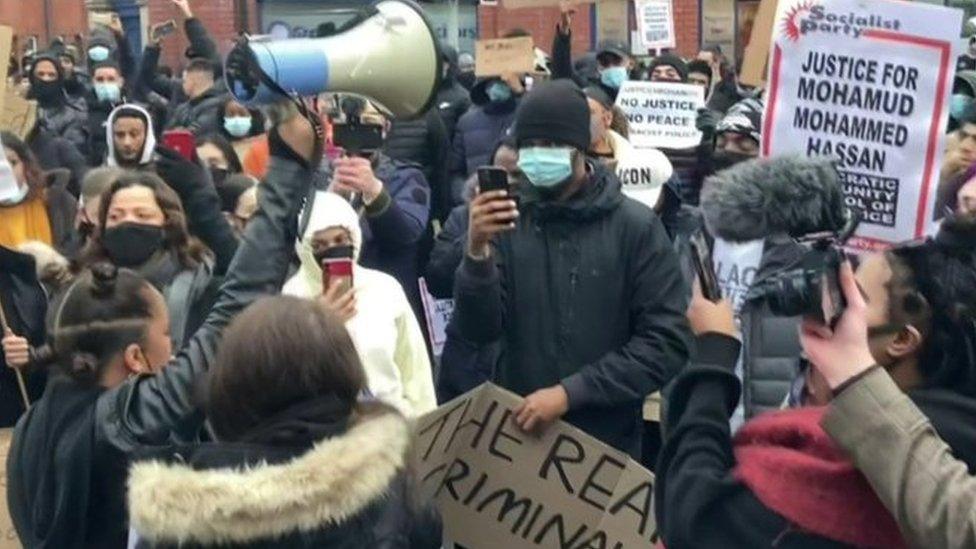Mohamud Mohammed Hassan: Protesters urged not to gather
- Published
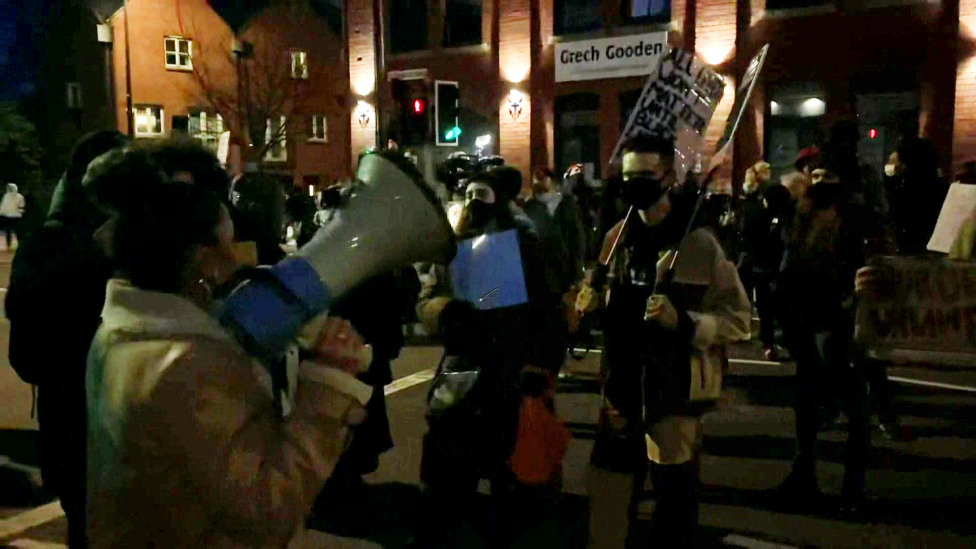
About 100 people protested in Cardiff on Thursday night over claims Mohamud Mohammed Hassan was assaulted in police custody
Protesters are being urged not to gather as demonstrations continue following the death of a man hours after being released by police.
Mohamud Mohammed Hassan died at his Cardiff home on Saturday and his family claimed he was assaulted in custody.
Hundreds of people attended protests this week and organisers said they encouraged social-distancing.
The Welsh Government urged people to stay at home amid restrictions but said protests were "integral" to democracy.
A spokesman said while the government appreciated the "strength of feeling" over Mr Hassan's death, the nation was still in a public health emergency and people should "stay at home" and not gather to "keep Wales safe".
South Wales Police said it was "engaging" with protesters and had reminded them of the coronavirus rules.
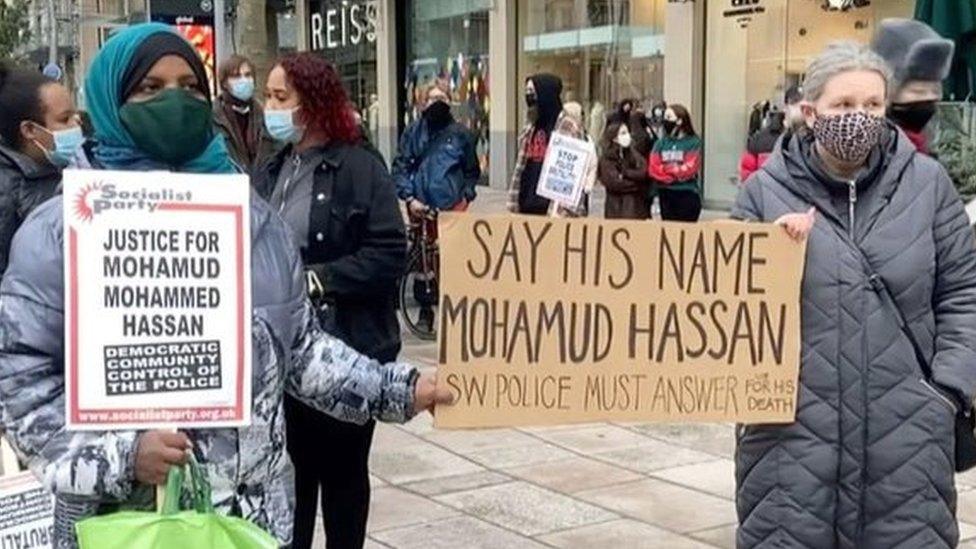
Protesters on Tuesday afternoon marched from the city centre to Cardiff Bay
On Tuesday, hundreds of people marched to Cardiff Bay police station, holding placards and chanting slogans.
Up to 200 people gathered outside the police station again on Wednesday, and about 100 attended a protest on Thursday.
Officers used Covid regulations to try and encourage them to leave the area.
Organisers said another protest would be held on Friday, which would be the last.
All of Wales is currently under a level four 'stay at home lockdown' with gatherings banned under law, and people unable to meet anyone outside their household, or, for those who live alone, one other household.
Bianca Ali, one of the founders of Black Lives Matter Cardiff and Vale, said organisers were trying to ensure protesters followed social-distancing to keep them safe.
"We've been handing out sanitiser and everyone has come wearing a mask unless they are exempt," she said.
She added that although they appreciated concerns over Covid, they felt Mr Hassan's death needed to be brought to public attention.
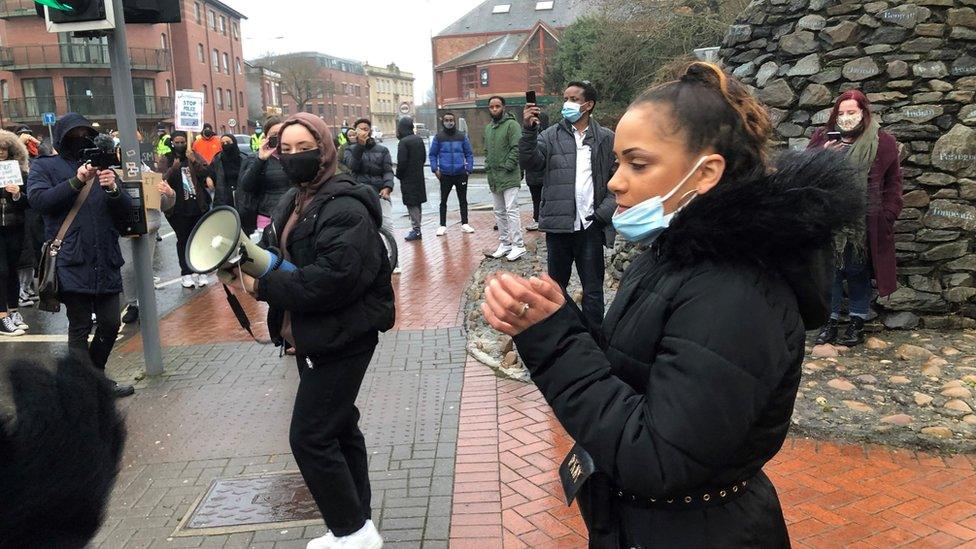
People gathered outside Cardiff Bay police station for a second day on Wednesday
A South Wales Police spokeswoman said: "UK policing recognises and upholds the right to democratic protest, and in normal circumstances we facilitate peaceful protest while minimising disruption to the wider public.
"But coronavirus remains a deadly disease and there are restrictions in place to prevent its spread."
Protesters gathered again on Wednesday
She said officers had engaged with protesters to remind them "of their obligations under the current coronavirus legislation" and that included not meeting others.
She said the force was "duty-bound to take into account all relevant legislation" and had "strived to maintain a consistent policing style of engaging, explaining and encouraging, and enforcing as last resort where necessary".
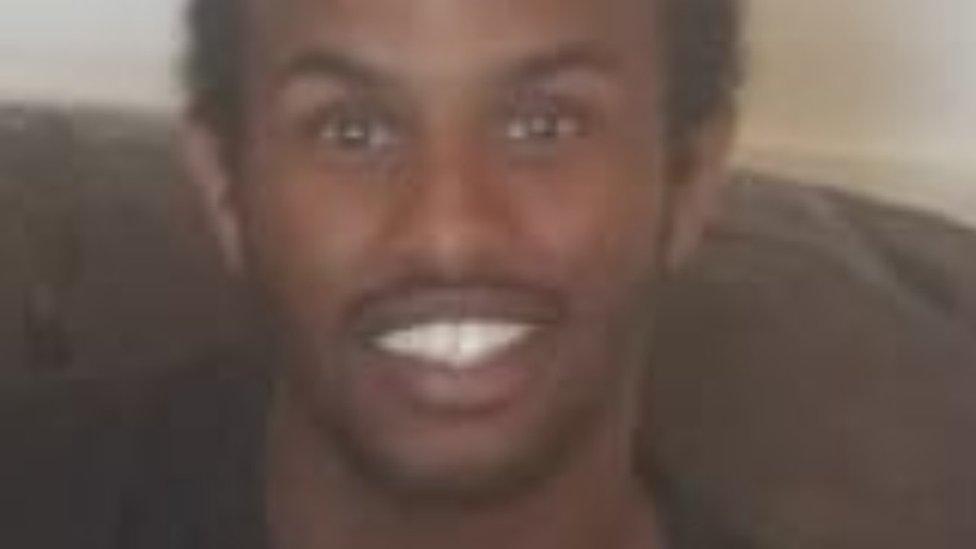
Mohamud Mohammed Hassan, 24, died on Saturday night
According to South Wales Police, Mr Hassan, 24, was arrested at his home in Newport Road, Roath, on Friday night and taken to Cardiff Bay police station, following an allegation of disturbing the peace.
He was released at 08:30 GMT on Saturday without charge, and officers returned to his home at about 22:30 following his death.
The Independent Office for Police Conduct is investigating his death.
How do police enforce Covid rules?
Police chiefs have followed a system called "The Four Es".
Before fines are issued, police will first:
Engage with people, to ask why they appear to be breaking the rules.
Explain the law, stressing the risks to public health and the NHS.
Encourage them to change their behaviour.
The fourth "E" is "Enforce" - a last resort - by issuing £60 fines.
Prof Colin Rogers, of the University of South Wales's International Centre for Policing and Security, said if police came in too heavy handed over Covid rules during a protest against alleged police action the situation could escalate quickly.
"This is like a tinderbox - a spark that could explode... that's why police discretion plays a big part," he said.
He added: "It's a fine balance and they are in a really difficult position."

While this gathering may not be permitted, when you consider the protest is against the very force being asked to police it, there is much at stake here.
Amidst accusations that police used excessive force, a heavy-handed approach to breaches of Covid regulations would undoubtedly enflame the situation further.
But turning a blind eye to breaches also risks damaging trust - and compliance - among all communities.
Related topics
- Published13 January 2021

- Published14 January 2021
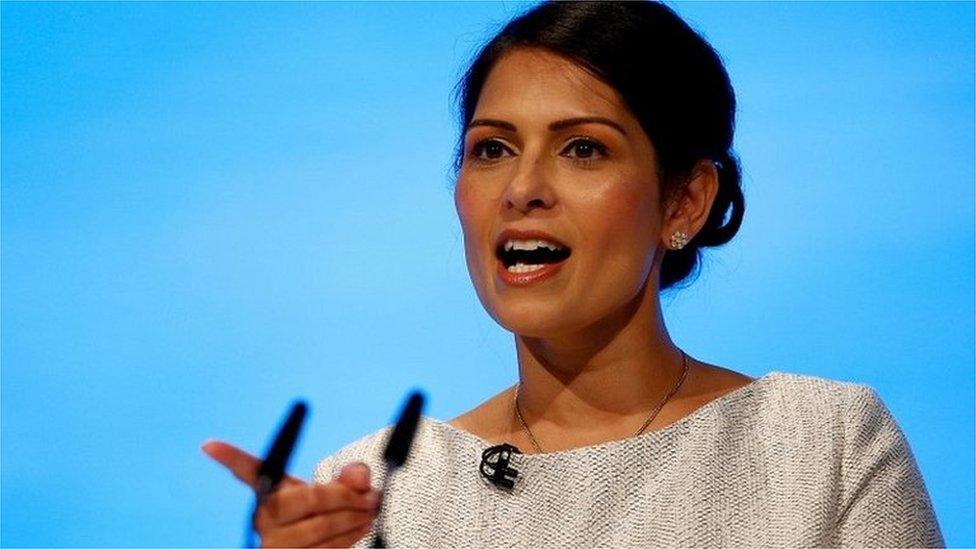
- Published11 January 2021
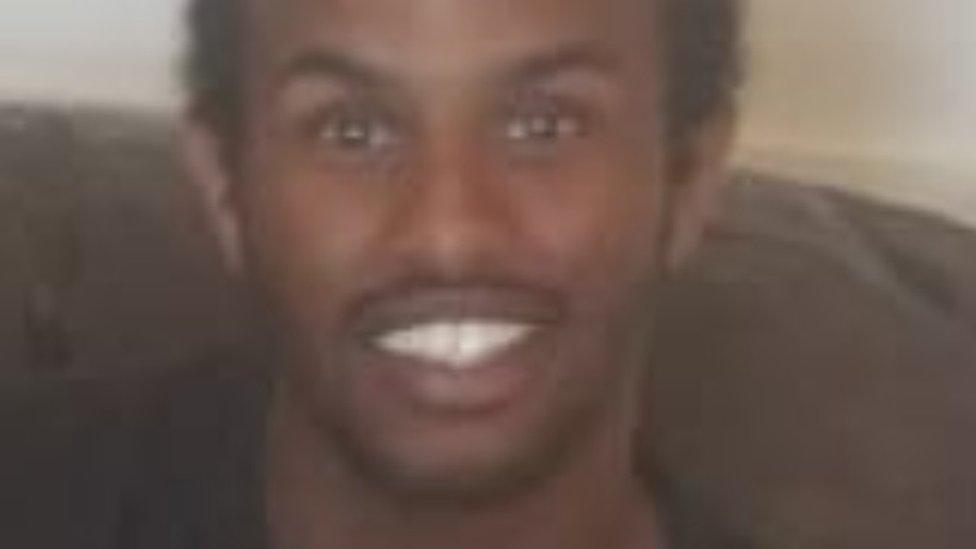
- Published12 January 2021
